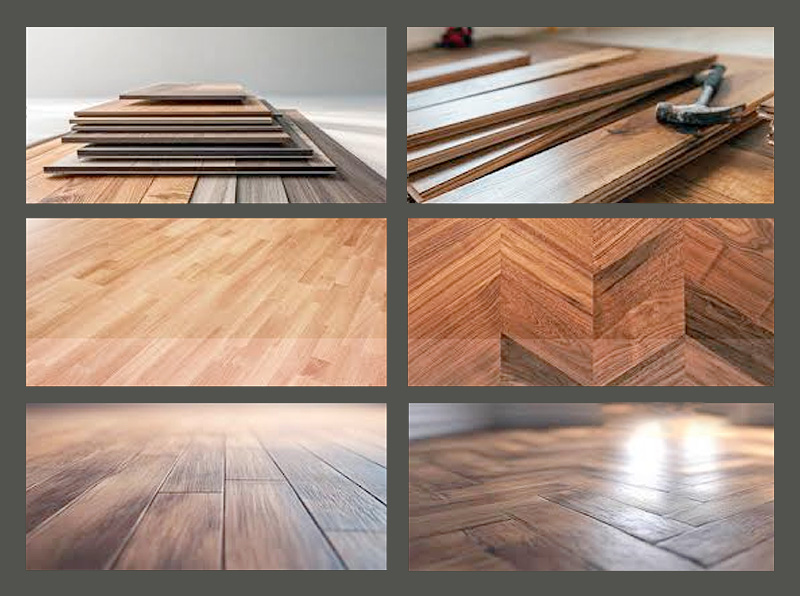There’s a reason why hardwood floors have remained a top choice for generations—they offer unmatched beauty, charm, and timeless appeal.
The Case for Hardwood Flooring
PROS
- Classic Elegance: Wood floors add warmth, sophistication, and a high-end look to any home. Trends may come and go, but hardwood never goes out of style.
- Durability & Longevity: With proper care, hardwood can last for decades. Many types can be sanded and refinished multiple times to refresh their look.
- Boosts Home Value: Real estate agents consistently cite hardwood flooring as a major selling point. Buyers often perceive it as a premium feature.
- Eco-Friendly (if sourced responsibly): Natural materials like oak, maple, and hickory are biodegradable and sustainable when harvested ethically.
CONS
- Cost: Hardwood floors are generally more expensive upfront—both in material and installation.
- Sensitive to Moisture: Wood can warp or stain if exposed to water or humidity, making it less ideal for bathrooms or basements.
- Maintenance Needs: It can scratch, dent, and fade, especially in high-traffic areas or homes with pets.
The Case for Luxury Vinyl Plank (LVP)
LVP has skyrocketed in popularity over the past decade—and for good reason. It offers great style, impressive durability, and affordability all in one.
PROS
- Budget-Friendly: LVP is significantly less expensive than hardwood, making it ideal for cost-conscious remodels.
- Waterproof Options: Perfect for kitchens, bathrooms, basements, and even laundry rooms—places hardwood wouldn’t dare to go.
- Low Maintenance: Resistant to scratches, dents, and stains, LVP stands up well to daily life with pets, kids, and everything in between.
- Realistic Look: Modern LVP mimics the appearance of wood so well, you might need a second glance to tell the difference.
CONS
- Not as Prestigious: While it looks great, LVP doesn’t offer the same “wow” factor or resale impact as real hardwood.
- Non-Refinishable: Once it’s worn or damaged, it must be replaced—not refinished.
- Eco Considerations: Some LVP products contain plastic-based materials and aren’t biodegradable, so they’re less environmentally friendly.
How Flooring Impacts Home Value
If your goal is maximizing resale value, hardwood flooring tends to have a stronger return on investment. Many buyers are willing to pay a premium for the beauty and longevity of real wood floors.
However, if you’re designing for function, affordability, or rental income, LVP often makes more sense. It holds up beautifully over time, looks high-end, and offers flexibility—especially in moisture-prone or high-traffic areas.
In short:
Hardwood = Long-term value, classic beauty, and strong buyer appeal
LVP = Practical durability, low maintenance, and budget-smart design
Final Thoughts
The best flooring for your home depends on your priorities: are you investing in a high-end dream space or refreshing a rental property? Do you need moisture resistance and kid-proof durability, or are you aiming for timeless luxury?
Either way, both hardwood and LVP offer beautiful, practical options that can elevate the look and feel of your home. It’s not just about flooring—it’s about how you want to live in your space and how you want your home to be valued down the line.
Need help choosing the right floor for your home or next project?
Let’s talk design strategy—because every great space starts from the ground up!



